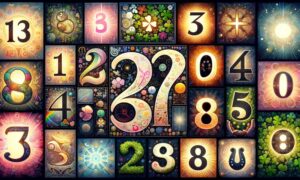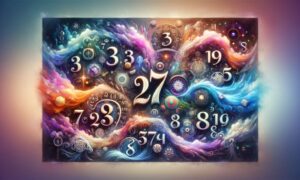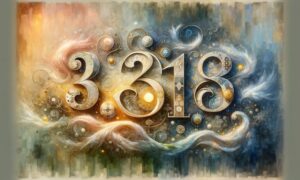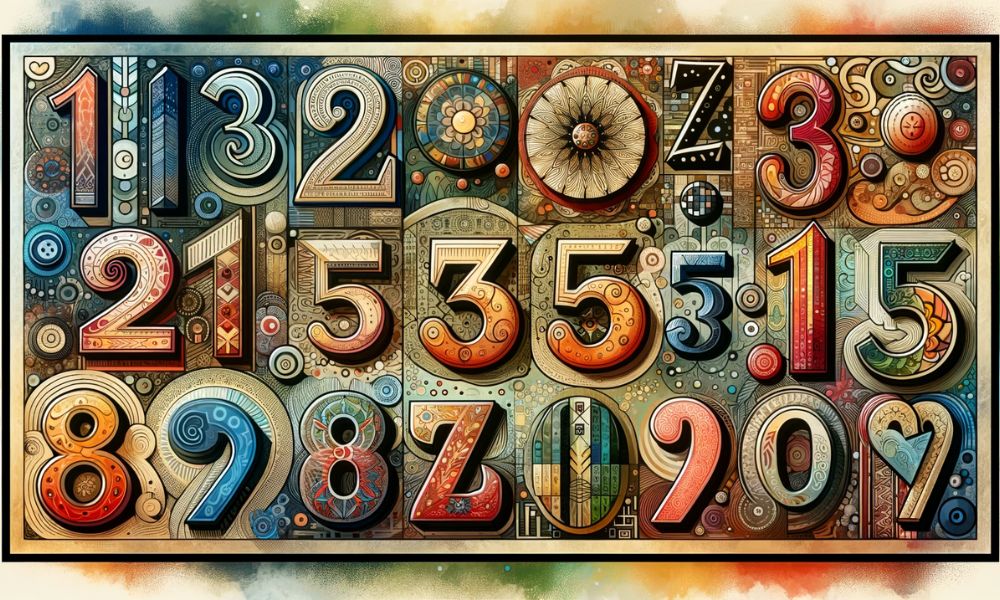Lucky numbers are numbers that are believed to bring good luck, fortune, or positivity to a person’s life. They can hold special meaning and significance for people from a variety of cultural backgrounds and personal experiences. Understanding more about the concept of lucky numbers can provide insight into human nature, spirituality, and the power of positive thinking.
Common Sources of Lucky Numbers

There are many potential sources and reasons why certain numbers feel lucky for different people. Some common origins of lucky numbers include:
Birthdates and Ages
- Birth years, months, and days can all contain lucky number meanings. For example, someone born on the 5th could consider 5 their lucky number.
- Important milestone ages, like 7, 13, 16, 18, 21, 40, 50 etc. may also stick out as personally lucky numbers for people.
Numerology and Personality Types
- In numerology, numbers hold certain vibrational meanings that connect to elements of human personality and destiny. When people resonate with the meanings of their numerology numbers, they can feel especially lucky.
- People also tend to gravitate towards lucky numbers that relate to their core personality traits and values. Bold people may favor lucky number 1, nurturing people the number 2, creative people lucky number 3, stability seeking people the number 4, and so on.
Spiritual and Religious Significance
- Certain numbers like 3, 7, 8, and 9 hold special spiritual meaning across multiple faiths and cultures, leading believers to see them as digitally divine, holy, or cosmic.
- People may also have lucky Scripture numbers or numbers they personally connect to saints, gods, prayers, commandments, spiritual rites, or mystical patterns.
Environmental Cues and Learning
- Phone numbers, addresses, jerseys, and more can drill numbers into someone’s mind, making them feel subjectively lucky by association.
- Traditions like birthday candles, wishbones, shooting stars, and blowing eyelashes play a role teaching lucky numbers through superstitious games and ideas.
Random, Unique Personal Experiences
- Any number could feel lucky if it presses someone’s positive memory buttons based on personal nostalgia. Lucky numbers can develop from pivotal dates, ages, times, statistics, scores, sums, and other quantity patterns that stand out in someone’s life story. Even a number on a billboard one sees during an exceptionally good mood could imprint as lucky.
Cultural and Historical Dimensions

Beyond personal psychology, collective cultural forces also shape shared lucky number patterns, meanings and customs across groups, geography and eras. Relevant cultural aspects surrounding lucky numbers include:
Regional and Cultural Differences
- Asian cultures frequently emphasize number 8 as lucky for its word similarity with prosperity, while number 4 can represent bad luck because it sounds similar to the word death in certain Asian languages.
- Western culture has long highlighted number 7 as lucky, tracing back biblically to its divine completion of creation and its magical slot in many stories. Friday the 13th has more negative stigma in western history.
- Number meanings can change over time as a culture’s values shift, similar to how physiognomy (face/body meanings) differs across place and era.
Migration, Media and Globalization Trends
- As people intermix between Eastern and Western cultures in a digital age, they import and blend numerical beliefs. This leads popular numbers like 3, 7 and 8 to gain steam globally while propagating more complex hybrid superstitions.
- Hit songs, jerseys, addresses, codes and PINs can popularize digits. Lotteries may spike favored picks. Digital globalization accelerates numerical propaganda.
Consistencies Across Ancient Cultures
- The triplet numbers 3, 7, and 12 uniquely permeate myths and religious texts all across ancient societies, including Egyptian, Mesopotamian, Indian, Chinese, Greek, Celtic and Judeo-Christian culture.
- Solar, lunar and zodiac cycles helped cement these “master numbers” as sacred constants across early civilizations predating global communication.
Subconscious and Emotional Impact

Regardless whether lucky numbers originate from personal experience or collective culture, they can actively influence someone’s mindset and quality of life when embraced. Possible emotional impacts include:
The Placebo Effect
- When people believe in their lucky numbers, activating confirmation bias, the mind perceives more positive coincidences. This placebo “lucky streak” reinforces the numbers’ mystical effects.
- As psychological self-fulfilling prophecies, lucky numbers can breeds tangible psychosomatic life improvements relating to mood, motivation, creativity, decision-making confidence, persistence, and more.
Motivation and Meaning
- Lucky numbers provide symbols to meditate on during difficult times. They “speak” personalized messages of hope.
- Having lucky numbers generates a playful passport to optimism, dreams, imagination and life purpose mysteries.
Connectedness and Continuity
- Shared lucky number practices and beliefs help bind families, teams, regional groups, generations, social classes, companies, traders, unions, guilds, churches and other human networks through a common language.
- Belief in personally lucky numbers creates a magical thread connecting someone back to their former selves and most precious early memories, granting comforting self continuity.
In summary, when processed in balanced moderation, putting faith in luck numbers can catalyze therapeutic mental states reminiscent of optimism, playfulness, motivation, creativity and childlike wonder. They provide self-soothing codes and customs to deal with hardship and trauma as well. Lucky numbers ultimately demonstrate the heart and resilience of human nature striving to see life’s randomness through magical lenses by projecting personalized meaning onto arbitrary patterns.
Frequently Asked Questions About Lucky Number Meaning
What are the most common lucky numbers?
Some of the most universally lucky numbers across cultures include 3, 7, 8, and number combinations based on birthdays or other special personal dates. In the west 7 dominates while Asian cultures favor 8.
Do lucky numbers really work?
It’s hard to quantify luck or prove repeatable cause and effect statistically, but significant evidence points to lucky numbers improving mindset and motivation via placebo effects and confirmation bias. In this sense they do work psychologically if not materially.
Can the same number be lucky and unlucky?
Yes, a number like 13 may be deemed very unlucky in western culture yet lucky in the context of a 13th birthday or baker’s dozen units. Number meanings depend hugely on contextual associations and cultural interpretations malleable over eras.
Should people rely on lucky numbers alone?
No, lucky numbers likely boost subjective well-being most effectively when embraced lightly alongside balanced principles of logic, critical thinking, agency, cause-and-effect action, and acceptance of unknowns/uncertainty. Grounding is key.
How do people discover their lucky number?
There are many paths to lucky numbers, usually through significance via numerology, birthdates, addresses, serendipity, spiritual affinities, family tradition, collective customs, pivotal events, or athlete jersey numbers seeming to “choose” someone energetically. Staying alert to personal number patterns consciously yet with detached openness can reveal meaningful lucky number candidates through a snowball effect over time.
Conclusion
In the end, lucky numbers hold entirely subjective meaning, yet the human relationship with them reflects something profound about human consciousness. Lucky numbers reveal people creatively striving to map whimsical personal narratives onto a chaotic universe to infuse daily life with sacredness, magic, and interconnectedness. More than causing measurable external luck per se, the true “luck power” in lucky numbers traces inward by lighting up people’s minds in uplifting ways hinted toward in placebo effects, positive expectations transforming reality, and the self-fulfilling charms of a playful, spirited perspective focused on bright possibilities.






